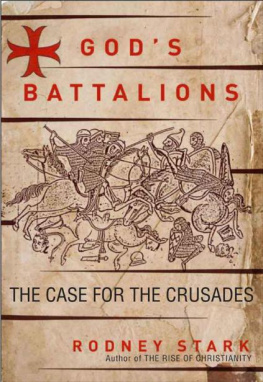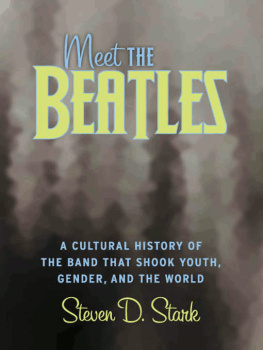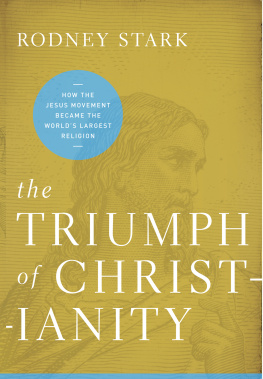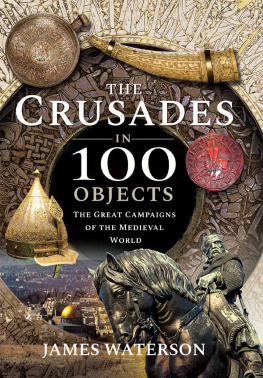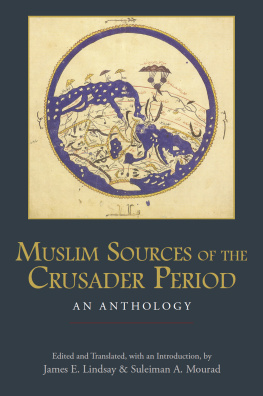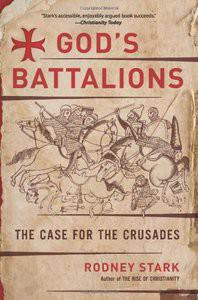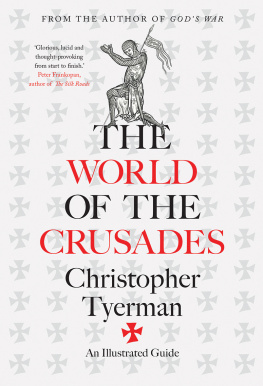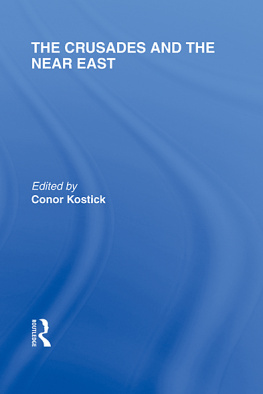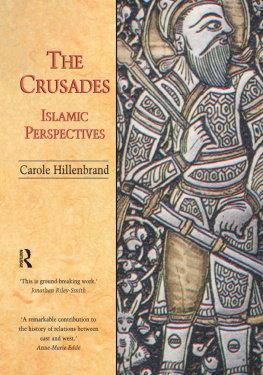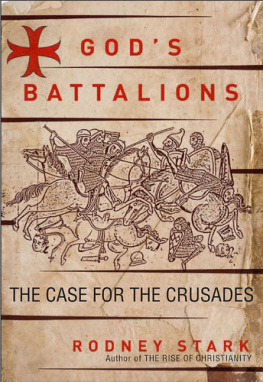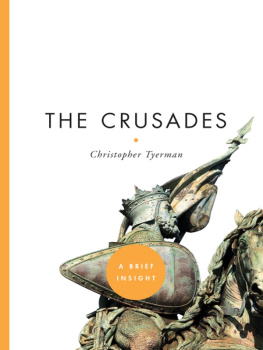GREEDY BARBARIANS IN ARMOR?

Pope Urban II asks a gathering of bishops and clergy during the Council at Clermont to help him preach the First Crusade. The next day he preached the Crusade to a huge crowd in a meadow.
Bridgeman-Giraudon / Art Resource, NY
O N NOVEMBER 27, 1095, Pope Urban II mounted a platform set up in a meadow outside the French city of Clermont, surrounded in all directions by an immense crowd. A vigorous man of fifty-three, Urban was blessed with an unusually powerful and expressive voice that made it possible for him to be heard at a great distance. On this memorable occasion, addressing a multitude that included poor peasants as well as nobility and clergy, the pope gave a speech that changed history.
Urban had arranged the gathering in response to a letter from Alexius Comnenus, emperor of Byzantium, who had written from his embattled capital of Constantinople to the Count of Flanders requesting that he and his fellow Christians send forces to help the Byzantines repel the Seljuk Turks, recent converts to Islam who had invaded the Middle East, captured Jerusalem, and driven to within one hundred miles of Constantinople. In his letter, the emperor detailed gruesome tortures of Christian pilgrims to the Holy Land and vile desecrations of churches, altars, and baptismal fonts. Should Constantinople fall to the Turks, not only would thousands more Christians be murdered, tortured, and raped, but also the most holy relics of the Saviour, gathered over the centuries, would be lost. Therefore in the name of Godwe implore you to bring this city all the faithful soldiers of Christ[I]n your coming you will find your reward in heaven, and if you do not come, God will condemn you.1
There were many reasons that Europeans might have ignored any plea for help from Byzantium. For one thing, their cultural heritage as well as their Christianity was Roman, while the Byzantines were Greeks, whose lifestyle seemed decadent to Europeans and whose Orthodox Christianity held Latin Catholicism in contemptoften persecuting its priests and practitioners. Nevertheless, when Pope Urban II read this letter he was determined that it be answered by worthy deeds, and he arranged for a church council at Clermont, which he followed with his famous speech.2
Speaking in French, the pope began by graphically detailing the torture, rape, and murder of Christian pilgrims and the defilement of churches and holy places committed by the Turks (he called them Persians) : They destroy the altars, after having defiled them with their uncleanness. They circumcise the Christians, and the blood of the circumcision they either pour on the altars or pour into the vases of the baptismal font. When they wish to torture people by a base death, they perforate their navels, and dragging forth the extremity of the intestines, bind it to a stake; then with flogging they lead the victim around until the viscera having gushed forth the victim falls prostrate on the groundWhat shall I say about the abominable rape of women? To speak of it is worse than to be silent. On whom therefore is the labor of avenging these wrongs and recovering this territory incumbent, if not upon you?3
At this point Pope Urban raised a second issue to which he and his illustrious predecessor Gregory VII had devoted years of effortthe chronic warfare of medieval times. The popes had been attempting to achieve a truce of God among the feudal nobility, many of whom seemed inclined to make war, even on their friends, just for the sake of a good fight. After all, it was what they had trained to do every day since early childhood. Here was their chance! Christian warriors, who continually and vainly seek pretexts for war, rejoice, for you have today found a true pretextIf you are conquered, you will have the glory of dying in the very same place as Jesus Christ, and God will never forget that he found you in the holy battalionsSoldiers of Hell, become soldiers of the living God!4
Now, shouts of Dieu li volt! (God wills it!) began to spread through the crowd, and men began to cut up cloaks and other pieces of cloth to make crosses and sew them against their chests. Everyone agreed that the next year they would set out for the Holy Land. And they did.
That is the traditional explanation of how and why the First Crusade began. But in recent times a far more cynical and sinister explanation of the Crusades has gained popularity. Thus, in the immediate aftermath of the destruction of the World Trade Center by Muslim terrorists, frequent mention was made of the Crusades as a basis for Islamic fury. It was argued that Muslim bitterness over their mistreatment by the Christian West can be dated back to the First Crusade. Far from being motivated by piety or by concern for the safety of pilgrims and the holy places in Jerusalem, the Crusades were but the first extremely bloody chapter in a long history of brutal European colonialism.5
More specifically, it is charged that the crusaders marched east not out of idealism, but in pursuit of lands and loot; that the Crusades were promoted by power-mad popes seeking to greatly expand Christianity through conversion of the Muslim masses; 6 and that the knights of Europe were barbarians who brutalized everyone in their path, leaving the enlightened Muslim culturein ruins.7 As Akbar Ahmed, chair of Islamic studies at American University in Washington, D.C., has suggested, the Crusades created a historical memory which is with us todaythe memory of a long European onslaught.8
Two months after the attack of September 11, 2001, on New York City, former president Bill Clinton informed an audience at Georgetown University that [t]hose of us who come from various European lineages are not blameless vis--vis the Crusades as a crime against Islam, and then summarized a medieval account about all the blood that was shed when Godfrey of Bouillon and his forces conquered Jerusalem in 1099.
That the Crusades were a terrible crime in great need of atonement was a popular theme even before the Islamic terrorists crashed their hijacked airliners. In 1999, the New York Times had solemnly proposed that the Crusades were comparable to Hitlers atrocities or to the ethnic cleansing in Kosovo.9 That same year, to mark the nine hundredth anniversary of the crusader conquest of Jerusalem, hundreds of devout Protestants took part in a reconciliation walk that began in Germany and ended in the Holy Land. Along the way the walkers wore T-shirts bearing the message I apologize in Arabic. Their official statement explained the need for a Christian apology:
Nine hundred years ago, our forefathers carried the name of Jesus Christ in battle across the Middle East. Fueled by fear, greed, and hatredthe Crusaders lifted the banner of the Cross above your peopleOn the anniversary of the First Crusadewe wish to retrace the footsteps of the Crusaders in apology for their deedsWe deeply regret the atrocities committed in the name of Christ by our predecessors. We renounce greed, hatred and fear, and condemn all violence done in the name of Jesus Christ. 10

